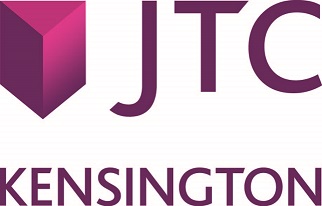On 4 August 2017, the Registrar of Companies in Malaysia (“CCM” or “the Registrar”) issued a practice directive setting out the qualifying criteria for private companies incorporated in Malaysia from having to appoint an auditor in a financial year (“Practice Directive”).
The Companies Act 2016 (“CA 2016”) implemented in Malaysia on 31 January 2017 encapsulates the dynamic business environment in today's global corporate scenario, as well as the consistent growth of the Malaysian economy. The new Act is at par with global standards. It ensures that the route for starting a business in Malaysia is more competitive, which in turn will attract more investments and promote the growth of Small & Medium Enterprises (‘SME’) in Malaysia.
Pursuant to subsection 267(2) of the CA 2016, the Registrar may exempt any private company from having to appoint an auditor according to the criteria and conditions as set out in the Practice Directive.
QUALIFYING CRITERIA FOR AUDIT EXEMPTION
For the purpose of this Practice Directive, the following categories of private companies will be qualified for audit exemption:
- Dormant companies
- Zero-Revenue Companies
- Threshold-Qualified Companies
DORMANT COMPANIES
A dormant company is a private entity as defined by the Malaysian Accounting Standards Board (MASB) and the company is qualified for audit exemption if –
- it has been dormant from the time of its incorporation; or
- it is dormant throughout the current financial year and in the immediate preceding financial year.
A company is dormant in a financial year if the company does not carry on business and there is no accounting transaction occurred.
The commencement date in the case of dormant companies -
- companies incorporated on or after 31 January 2017
- financial statements with annual periods commencing on or after 31 January 2017 - Companies incorporated on or before 30 January 2017
- financial statements with annual periods commencing on or after 1 September 2017.
ZERO-REVENUE COMPANIES
A zero-revenue company is a private entity as defined by the MASB and the company is qualified for audit exemption if –
- it does not have any revenue during the current financial year;
- it does not have any revenue in the immediate past two (2) financial years; and
- its total assets in the current Statement of Financial Position (FS) does not exceed RM300,000 as well as in the FS of the immediate past two (2) financial years.
For purpose of above,
- “revenue” does not include credit entries for reversal of accounting entries arising from earlier entries, accounting entries related to taxation, reversal of provisions made earlier and gain on derecognition of property, plant, equipment and investment property in the Statement of Comprehensive Income;
- a company ceases to be inactive where there are revenue received or receivable; and
- any expenses incurred in maintaining the company is disregarded.
The commencement date in the case of zero-revenue companies :
- financial statements commencing on or after 1 January 2018 where election not to audit its financial statements will be triggered for financial year ended 31 December 2018 onwards.
THRESHOLD-QUALIFIED COMPANIES
A threshold-qualified company is a private entity as defined by the MASB and is qualified for an audit exemption if :
- it has revenue not exceeding RM100,000 during the current financial year and in the immediate past two (2) financial years. Revenue here includes revenue receivable during the year;
- its total assets in the current Statement of Financial Position (FS) does not exceed RM300,000 and in the immediate past two (2) financial years; and
- it has, at the end of its current financial year and in each of its immediate past two (2) financial years end, not more than five (5) employees. The number of employees is based on the number of full-time employees employed by the company at the end of each relevant financial years.
The commencement date in the case of threshold-qualified companies :
- financial statements commencing on or after 1 July 2018 where election not to audit its financial statements will be triggered for financial year ended 30 June 2019 onwards.
OTHER CONDITIONS
A company that is eligible for audit exemption shall be required to audit its accounts if it receives a notice in writing requiring the company to audit its accounts during a financial year but not later than one (1) month before the end of that financial year from:–
- any member(s) eligible to vote and holding in aggregate of not less than 5% of the total number of issued shares of the company or any class of those shares;
- not less than 5% of the total number of members eligible to vote in of the company; or
- the Registrar who directs the company to have its accounts audited.
Also, where a company which is exempt from audit requirements ceases to be so qualified, it shall thereupon cease to be so exempt but it shall remain so exempt in relation to accounts for the financial years in which it qualifies.
REQUIREMENTS FOR SUBMISSION OF ACCOUNTS
- Any company that elects to be exempted from audit is still obliged to prepare its unaudited financial statements in accordance with applicable approved accounting standards pursuant to the CA 2016.
- The unaudited financial statements shall be lodged together with the directors’ report, statement by directors and statutory declaration pursuant to the CA 2016 accompanied by the Audit Exemption Certificate within thirty (30) days from the circulation date of the unaudited financial statements and reports.
